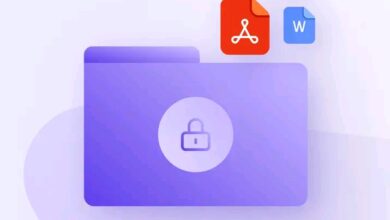How to Start Freelancing Work (For Beginners With No Experience)

Freelancing has become a popular and flexible career choice for many individuals worldwide.
Whether you’re a fresh graduate, a stay-at-home parent, or someone looking for additional income, freelancing offers an excellent opportunity to work independently and showcase your skills.
If you’re a beginner with no prior experience in freelancing, worry not! This comprehensive guide will walk you through the essential steps to kickstart your freelancing journey and build a successful career.
Identify Your Skills and Passion
The first step to starting freelancing work is to identify your skills, interests, and passions. Take an inventory of what you are good at and what you enjoy doing.
This could be anything from writing, graphic design, web development, social media management, or even virtual assistance. Knowing your strengths will help you choose the right freelancing niche.
Create an Impressive Portfolio
Even if you have no prior freelancing experience, you can showcase your potential clients what you can do by creating an impressive portfolio.
Develop sample projects or offer your services to friends and family to build a portfolio that highlights your skills and creativity.
A well-organized portfolio will increase your credibility and make a positive first impression on potential clients.
Set Realistic Goals and Pricing
When starting as a freelancer, it’s essential to set realistic goals and pricing for your services. Research the market rates for your chosen niche and align your prices accordingly.
Initially, you might need to offer competitive rates to attract clients, but as you gain experience and build a reputation, you can adjust your pricing accordingly.
Utilize Freelance Platforms
Freelance platforms like Upwork, Freelancer, Fiverr, and many others offer a convenient way to connect with potential clients.
Create a compelling profile on these platforms, highlighting your skills, experience, and portfolio. Be proactive in bidding on relevant projects to increase your chances of getting hired.
Network and Market Yourself
Networking is crucial in the freelancing world. Leverage social media platforms like LinkedIn, Twitter, and Facebook to connect with other freelancers and potential clients.
Engage in discussions, share your work, and establish yourself as an expert in your field. Additionally, consider starting a blog or a personal website to showcase your expertise and attract organic traffic.
Deliver High-Quality Work and Build Your Reputation
In the beginning, focus on delivering high-quality work to your clients. Positive reviews and testimonials are essential for building your reputation as a reliable freelancer.
Satisfied clients are more likely to recommend you to others, helping you secure more projects and expand your freelancing career.
Upskill and Stay Updated
The freelancing industry is dynamic, and it’s essential to stay updated with the latest trends and technologies in your niche.
Invest time in upskilling yourself through online courses, workshops, or tutorials. Continuous learning will not only enhance your skills but also boost your confidence and attract more clients.
FAQs
How do I start freelancing with no experience for beginners?
Starting freelancing with no experience requires identifying your skills, creating a portfolio, setting realistic goals and pricing, and utilizing freelance platforms to find clients.
How do I start freelancing for beginners?
To begin freelancing as a beginner, assess your skills, build a portfolio, set reasonable rates, network, and deliver high-quality work to build your reputation.
How can I start freelancing in Nigeria?
Starting freelancing in Nigeria follows the same steps as anywhere else: identify your skills, create a portfolio, use freelance platforms, network, and deliver exceptional work to clients.
What should I learn first for freelancing?
The skills you should learn first for freelancing depend on your interests and strengths. Common freelancing areas include writing, graphic design, web development, social media management, and virtual assistance. Choose a niche that aligns with your abilities and passions.





